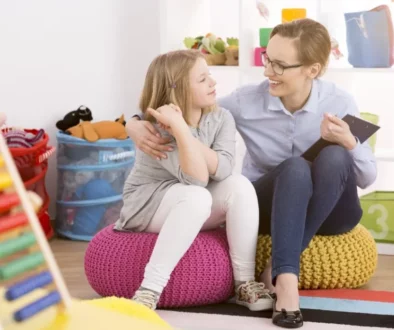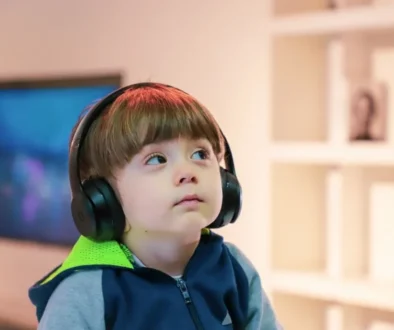A Guide to Understanding Your Child’s Autism Diagnosis
Did you know that roughly 5,437,988 adults in the United States have autism spectrum disorder (or ASD)? If you’re an adult with ADS, understanding your autism diagnosis can be fairly straightforward.
But, the same isn’t true for the 2% of children diagnosed with an autism spectrum disorder. Children rely on their parents and medical professionals to help them learn about their condition.
If your child was recently diagnosed with ASD, you must learn everything you can about the disorder. That way, you and your doctor can decide on the best course of action for treatment (if any is needed).
To help you out, we’ll walk you through everything you need to know about your child’s diagnosis. Let’s get started!
What Happens After Your Child’s Autism Diagnosis?
The assessment for autism testing will take between three to four visits. After that, you will attend the final appointment. At our Texas practice, we’ll go over all the data we’ve collected and how we arrived at the diagnosis.
We’ll then give you some recommendations and answer any questions you might have. But, it’s important to remember that a diagnosis isn’t the end of your child’s journey with an autism spectrum disorder. It’s the beginning.
No two children with ASD are the same. So, each one will require a specialized action plan to deal with the challenges caused by their disorder.
Here at Developmental Pediatrics in Texas, we’ll help you create that actionable plan. We’ll then put you in touch with specialists that can help with overcoming any challenges your child may be facing because of ASD.
Should You Tell Your Child About Their Diagnosis?
Unfortunately, there is no perfect answer to this question. There’s not a set age or time when you should tell your child about their diagnosis.
However, there are signs. When your child begins grappling with their personality and social awareness, they may begin asking questions like:
- Is there something wrong with me?
- Why is everyone else so different?
- Why can’t I be like everyone else?
If your child is asking these questions, it’s a clear sign they want more information about their condition. However, your child may still be sensitive about their differences.
Still, we usually believe that it’s best to tell them about it before they reach their teens.
It’s not wise to wait for a negative experience, like another child telling them they’re different, to talk about it. Instead, it should come gently, from a loved one before a negative experience arises.
How Do You Tell Them?
The most important part of talking about ASD with your child is to remain positive. Start by talking about concrete differences in people. Choose something easy that they can understand.
For example, your child might like video games, but their friend likes sports. Or your father wears glasses, but your mother doesn’t. These examples help smooth the way toward talking about autism spectrum disorder.
Tell them that ASD doesn’t make them better or worse than their peers. It just makes them different. Focus on some of the positive differences provided by ASD, like creativity and logical thinking.
You can also touch on some of the challenges, like sensory issues and communication problems. Don’t go into too much information. Most young children require minimal knowledge at the start.
Remember that you can add more information over time as they ask about it. If they’re curious about their ASD, consider getting them some books on the subject if they’re a strong reader.
Talk to Your Friends and Family About It
When dealing with a child who has autism spectrum disorder it’s important to get all the help you can. That means having a support system of close friends and family that you can rely on.
Sadly, there is a lot of misinformation surrounding autism spectrum disorder. This can make talking about ASD with these people challenging. You can start by sharing some of the common behavioral signs that your child displayed.
Things that they may have noticed, like lack of eye contact, trouble connecting socially, and frequent meltdowns. Explain how these early signs led you to get an autism diagnosis. If they’re skeptical, explain some common autism spectrum disorder basics like:
- ASD is a neurodevelopment disability
- ASD is a spectrum of behaviors so every individual that has it is unique
- People with ASD often have trouble with social skills and repetitive behaviors
- ASD isn’t caused by vaccines
- ASD is a lifelong condition
- ASD isn’t caused by bad parenting it happens in utero
Don’t overwhelm them with information. Just give them enough to understand your situation. Encourage them to research more on their own.
Consider Behavioral Treatments
Behavioral treatments aren’t there to “fix” your child’s ASD. It’s important to remember that there is nothing wrong with them.
But, they can be used to help your child develop communication and learning skills that might not come naturally to them.
There are a lot of different behavioral treatments out there. Some of the popular ones include:
- Positive Behavioral and Support (or PBS) – focuses on a particular behavioral problem
- Pivotal Response Training (or PRT) – improves a few pivotal skills
- Early Intensive Behavioral Intervention (or EIBI) – behavioral instruction for very young children
- Discrete Trial Teaching (or DTT) – teaches skills in a controlled environment through step-by-step instructions
If you want more information on these types of treatment, check out this guide. After diagnosing autism, your doctor will likely have some suggestions on appropriate treatments.
Ideally, they will also give you some recommendations for centers that offer these types of treatments.
Need An ASD Diagnosis? Contact Developmental Pediatrics
We hope this article helped you learn more about your child’s autism diagnosis. Before you can know what to do about your child’s ASD you first need a diagnosis.
Unfortunately, an autism diagnosis in Texas can be quite a prolonged experience. That’s why it’s vital to find specialists in developmental pediatrics.
If you need a Texas autism diagnosis, the best option for you is Developmental Pediatrics. Our two specialists, Dr. Mike Rios and Lawanna Smith have decades of combined experience in this field.
That means we can make the testing experience as comfortable and accurate as possible for your child. Contact us today if you have any questions about our process.



